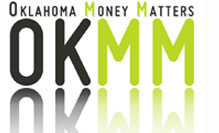Save Vs. Pay Off Debt
Page 4 of 13
Many people face the difficult choice of putting extra money toward paying down debt or building a savings fund. Ideally, you should try to scrape a little extra out of your budget and work on both at the same time. If that’s not possible, you’ll need to do some math to determine what’s most economical. 
Consider the amount of interest you earn on your savings and compare that to the interest you’re being charged for your debt. Also take into account any tax benefits you might receive, such as mortgage interest deductions. If you’re earning 2 percent interest on your savings and paying 18 percent interest on your debt, you’ve got a 16 percent problem. If the interest you’re paying on debt is higher than what you’ll earn in a savings account and there are no other tax benefits, pay off your debt first.
That said, don’t completely neglect your savings! To keep up your saving habit, make sure you contribute something to savings each month, even if it’s only a small amount. Once the debt is paid, shift those monthly payments to savings. Since you’re already living without the extra money, you won’t miss it!
Learn about the debt snowball method to help you eliminate debt quickly, so you can focus on your savings.


